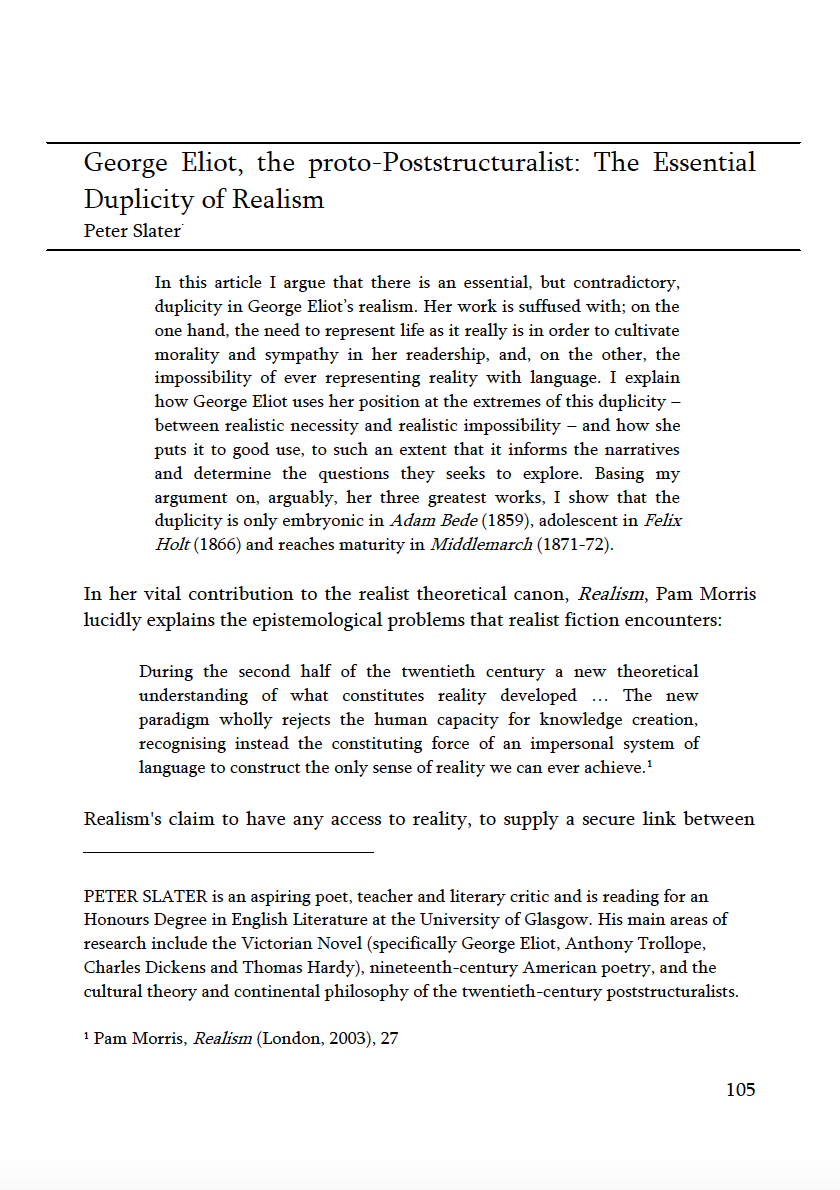George Eliot, the proto-Poststructuralist
The Essential Duplicity of Realism
DOI:
https://doi.org/10.36399/GroundingsUG.5.242Keywords:
George Eliot, Proto-poststructuralism, Duplicity, Realism, Realistic Necessity, Realistic Impossibility, NarrativesAbstract
In this article I argue that there is an essential, but contradictory, duplicity in George Eliot’s realism. Her work is suffused with; on the one hand, the need to represent life as it really is in order to cultivate morality and sympathy in her readership, and, on the other, the impossibility of ever representing reality with language. I explain how George Eliot uses her position at the extremes of this duplicity – between realistic necessity and realistic impossibility – and how she puts it to good use, to such an extent that it informs the narratives and determine the questions they seeks to explore. Basing my argument on, arguably, her three greatest works, I show that the duplicity is only embryonic in Adam Bede (1859), adolescent in Felix Holt (1866) and reaches maturity in Middlemarch (1871-72).

Downloads
Published
Issue
Section
License
Copyright (c) 2012 Peter Slater

This work is licensed under a Creative Commons Attribution 4.0 International License.
The CC BY 4.0 license is a Creative Commons license. This is a non-copyleft free license that is good for art and entertainment works, and educational works. It is compatible with all versions of the GNU GPL; however, like all CC licenses, it should not be used on software. People are free to: Share — copy and redistribute the material in any medium or format; Adapt — remix, transform, and build upon the material for any purpose, even commercially. The licensor cannot revoke these freedoms as long as you follow the license terms. But they must conform to the following terms: Attribution — You must give appropriate credit, provide a link to the license, and indicate if changes were made. You may do so in any reasonable manner, but not in any way that suggests the licensor endorses you or your use. No additional restrictions — You may not apply legal terms or technological measures that legally restrict others from doing anything the license permits.
Please check individual article PDF copies to see if any additional restrictions apply.







